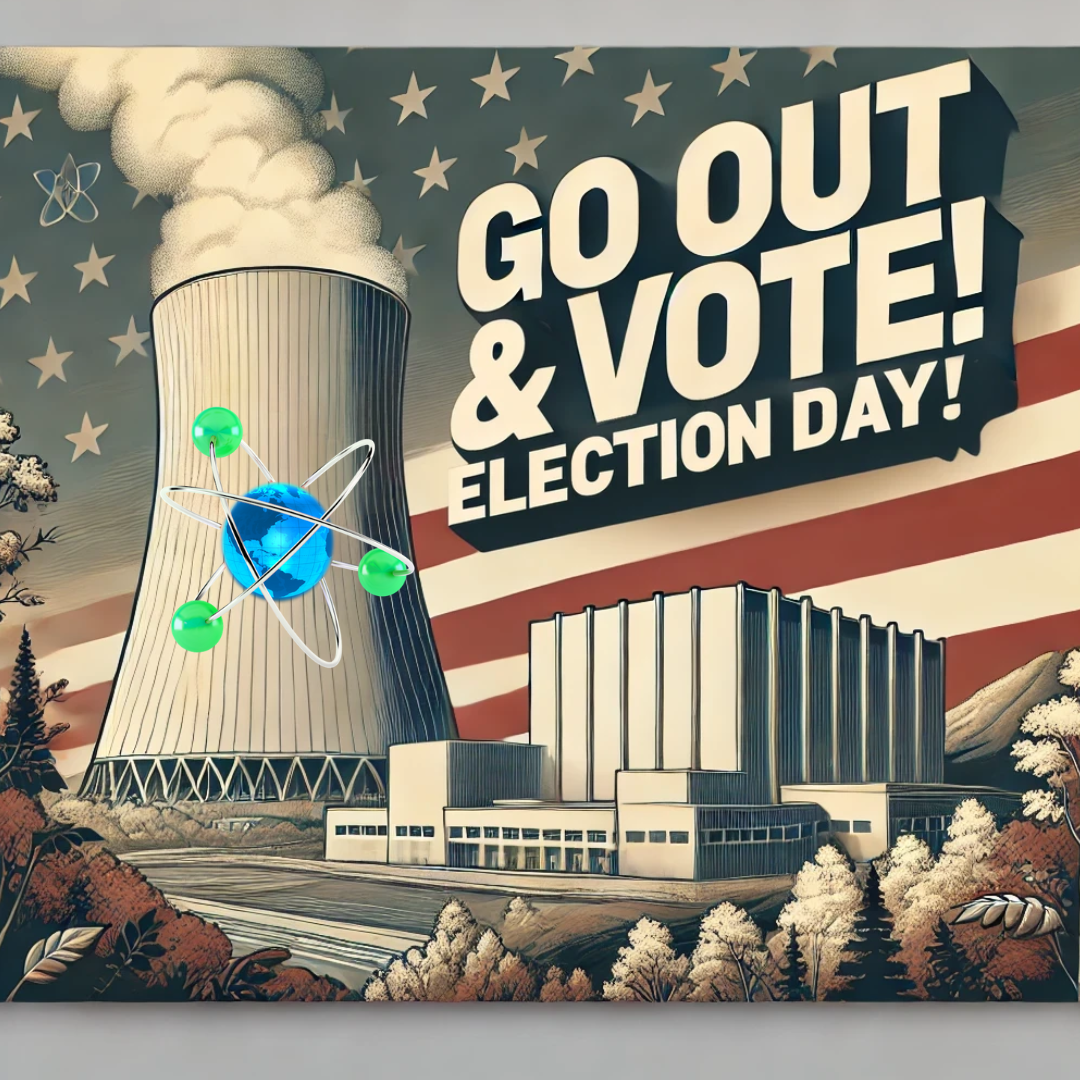
- Diverging Approaches: The future of nuclear energy regulations post-2024 will largely depend on the administration in power, with significant contrasts between Republican and Democrat priorities.
- Bipartisan Potential: While nuclear energy has bipartisan support, the approach to funding, regulatory speed, and project priorities could shift drastically.
- 2024: A Pivotal Year for Nuclear: With clean energy in high demand, both parties may look to nuclear energy as a climate solution, but each has a unique roadmap for its expansion and regulation.
As the 2024 election approaches, nuclear energy is emerging as a central pillar in discussions on America’s energy future. With its potential to deliver clean, reliable power, nuclear energy is seen by both Democrats and Republicans as a viable solution to reduce carbon emissions and achieve energy security. However, while nuclear enjoys broad support across party lines, the specific regulatory paths that nuclear energy will take could vary widely, depending on the election’s outcome.
If a Democrat Wins: Focus on SMRs and Advanced Reactors, Plus Regulatory Modernization
The Biden administration has already laid out a robust nuclear energy agenda, with initiatives to recommission decommissioned plants and a push for next-generation nuclear reactors. Under a Democratic administration, we can expect to see continued support for Small Modular Reactors (SMRs) and advanced reactors, which are considered essential for clean energy goals. This approach aligns with Biden’s commitment to diversify energy sources and reduce emissions while bolstering the nation’s grid resilience.
Biden’s Past Actions
Biden’s administration has funneled billions into nuclear projects, including support for restarting the Palisades plant in Michigan and revitalizing Pennsylvania’s Three Mile Island. The focus has been not only on reviving existing infrastructure but also on investing in new, smaller reactors that can be deployed in a variety of settings, such as U.S. Navy bases, to enhance both national security and energy independence.
A Democrat-led administration post-2024 is likely to continue prioritizing federal funding and incentives for nuclear R&D, with a heavy emphasis on deploying SMRs and achieving regulatory efficiency. Recent bipartisan legislation aimed at modernizing the Nuclear Regulatory Commission (NRC) indicates some room for bipartisan support in streamlining regulatory processes to speed up the rollout of nuclear projects.
If a Republican Wins: Emphasis on Deregulation and Market-Driven Nuclear Expansion
Under a Republican administration, nuclear energy policy would likely focus more on deregulation and less on direct federal intervention. Former President Trump, for instance, championed a market-driven approach and removed regulatory hurdles for energy projects, favoring traditional energy sources while expressing some interest in nuclear as a strategic asset.
Potential Actions Under a Republican President
A Republican president might accelerate deregulation of the nuclear sector, removing what some consider bureaucratic obstacles to the construction and operation of nuclear facilities. This could mean a faster track for SMRs and advanced reactors, allowing private companies to play a bigger role in the industry. Republicans may prioritize investments that make nuclear more economically competitive, possibly through tax breaks and less restrictive permitting processes.
While Democrats favor a heavy government hand in funding and supporting the transition to clean energy, a Republican administration could look to reduce the federal footprint and foster partnerships with private industry to make nuclear energy more viable in the market. This approach could broaden the range of stakeholders in nuclear energy, potentially creating more cost-effective solutions through competition.
Bipartisan Opportunities in Nuclear Energy
Despite these differences, nuclear energy could be one of the few sectors with bipartisan momentum in a divided Congress. Both parties recognize nuclear as a powerful tool in combating climate change and securing energy independence. While Democrats might push for federal incentives to ensure emission goals are met, Republicans could focus on deregulation to create more competitive and market-friendly conditions.
In recent years, bipartisan initiatives have supported the modernization of the NRC and backed research into new nuclear technologies. Moving forward, the focus on SMRs and microreactors may unite both parties under a common goal of a resilient, diversified energy portfolio.
Future Expectations
The 2024 election will be pivotal for the nuclear industry, as the regulatory landscape will shift depending on who takes office. A Democratic win could mean continued federal investments and innovation in SMRs and next-gen reactors, while a Republican win may lead to reduced regulations and greater private-sector engagement. Either way, nuclear energy stands to benefit from increased support, positioning it as a cornerstone in America’s clean energy transition.

0 Comments